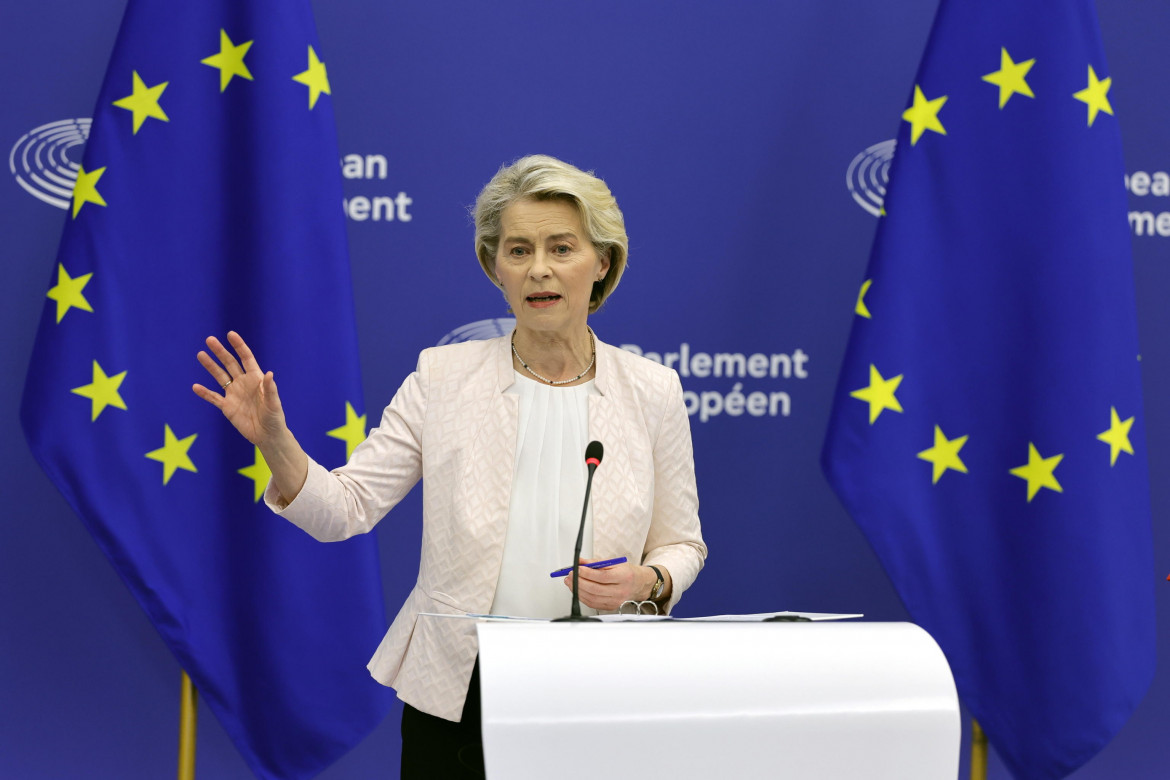Analysis
Austerity for all – unless you’re the military
Ursula von der Leyen continues to push hard on the arms race. But we will have to wait for the Defense White Paper, due on March 19, to learn more. Meanwhile, finance ministers are putting on the brakes.

Beyond the destructive and bombastic statements, when it comes to dealing with reality, the excesses get toned down. The day after the 8+3 mini-summit of European countries in Paris (with a possible second meeting open to other EU countries and expanded to include Canada expected on Wednesday), U.S. Secretary of State Marco Rubio, speaking from Riyadh, had to admit that the EU would have to be involved in the negotiations with Russia, simply “because they have sanctions [against Russia] as well.” The EU is set to approve a new sanctions package next week.
Brussels is insisting on “partnering” with the U.S. so as not to break the Western front and deliver a “just and lasting peace for Ukraine,” stressed Commission President Ursula von der Leyen after meeting with the U.S.’s representative, General Keith Kellogg.
Von der Leyen reminded the general that “financially and militarily, Europe has brought more to the table than anyone else” to support Ukraine: €135 billion in the three years of the war, including €52 billion in military aid (as much as the U.S.). She added that the EU “stands ready to do even more” and that it “had plans to scale up defense production and spending, reinforcing both European and Ukrainian military capabilities” to address the current “critical moment.”
Ursula von der Leyen continues to push hard on the arms race. But we will have to wait for the Defense White Paper, due on March 19, to learn more.
Meanwhile, finance ministers are putting on the brakes. At Ecofin on Tuesday, they stressed that no one knows the details about the possibility of increased military spending at this point. Currently, eight EU countries are under an excessive deficit procedure (among them France, Poland, Italy, Belgium). Von der Leyen has spoken in vague terms about activating “the escape clause,” but Economy Commissioner Valdis Dombrovskis clarified on Tuesday that there was “no final decision” on the mechanism to be used.
In the EU, there are two types of “loopholes” to escape the restrictions of the Stability Pact: one “general,” the other “national.” The general one can be triggered in case of a large shock affecting the Eurozone or the EU economy, which is what happened with COVID. The national one has actually never been used: it is a recent device meant for exceptional circumstances beyond the control of a state or in case of a big financial crash. Both require a qualified majority vote (at least 15 countries representing at least 65 percent of the EU population).
The head of the Eurogroup, Paschal Donohoe, is ruling this out for now: “The approach of the last Eurogroup statement still remains intact,” he said on Tuesday, which called for a “restrictive budget policy” in the Eurozone to correct debt excesses (the likely next German chancellor, Friedrich Merz, is already getting restless about the danger of a new Eurozone debt crisis among the “profligate countries”). However, in more concrete terms, the EU may become more lenient on excessive deficits when the issue is increased military spending, as Dombrovskis has hinted, talking about “more flexibility as regards defense.”
On Wednesday, Trade Commissioner Maros Sefcovic was set to meet with U.S. Commerce Secretary Howard Lutnick in Washington to try to avoid tariffs. He hoped to convince Lutnick to accept a “package of cooperation,” meaning he was bringing as a gift a European promise to buy more gas, more weapons and more cars from the U.S. in order to resolve the trade imbalance (the EU has a €157 billion surplus on goods, together with a smaller deficit on services). However, the EU is not going to discuss the Digital Services Act and Digital Market Act rules that U.S. tech companies find so bothersome, because “we do not think that our legislation is part of a negotiation,” said Brando Benifei, the chairman of the European Parliament’s delegation to the U.S.
Originally published at https://ilmanifesto.it/lausterity-non-vale-per-le-spese-militari on 2025-02-19
